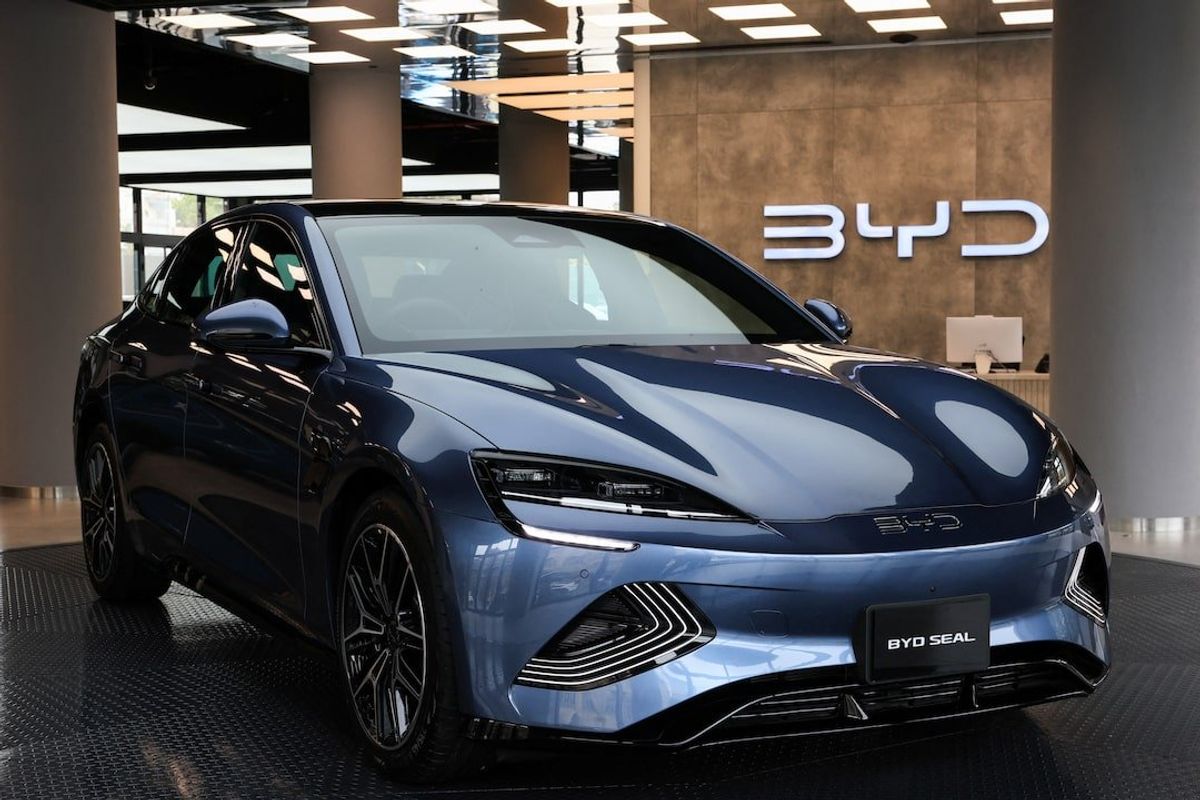Pakistan adopts global vehicle standards as leadership crisis grips key implementing body
Sources say selection process for a permanent CEO of Engineering Development Board was completed nearly a year ago, yet appointment remains pending

Javed Hussain
Correspondent
I have almost 20 years of experience in print, radio, and TV media. I started my career with "Daily Jang" after which I got the opportunity to work in FM 103, Radio Pakistan, News One, Ab Tak News, Dawn News TV, Dunya News, 92 News and regional channels Rohi TV, Apna Channel and Sach TV where I worked and gained experience in different areas of all three mediums. My journey from reporting to news anchor in these organisations was excellent. Now, I am working as a correspondent with Nukta in Islamabad, where I get the opportunity of in-depth journalism and storytelling while I am now covering parliamentary affairs, politics, and technology.

A BYD SEAL electric vehicle is displayed at the BYD Pakistan Metropole Experience Center, in Karachi, Pakistan July 23, 2025.
Reuters
The government of Pakistan has announced the adoption of over 60 international vehicle safety, quality, and environmental regulations under the United Nations framework (UNECE WP-29), a major step toward aligning the local auto industry with global standards.
However, the key implementing agency — the Engineering Development Board (EDB) — is operating without a permanent Chief Executive Officer (CEO) for more than 1.5 years, raising serious questions about governance, transparency, and the credibility of this reform.
The EDB, functioning under the Ministry of Industries and Production (MoIP), has been run on an ad-hoc basis since June 2024, when General Manager Khuda Bakhsh was given a “look-after” charge. According to government rules, such temporary arrangements can only last for two months, but the current setup has exceeded 14 months without formal approval from the federal cabinet.
Sources confirm that the selection process for a permanent CEO was completed nearly a year ago, yet the appointment remains pending. Interestingly, the acting CEO himself was a candidate but failed to make it to the top five shortlisted names — despite continuing in office for over a year.
Officials inside the ministry describe the situation as a legal irregularity, noting that a “look-after” charge cannot be extended indefinitely. To make matters worse, a pending inquiry reportedly exists against the acting CEO over previous administrative irregularities, yet he continues to hold the most important industrial policy position in the ministry.
A senior official, speaking on condition of anonymity, remarked: “It is alarming that someone facing an inquiry is heading an organization responsible for implementing national industrial and export policies. This undermines both transparency and credibility.”
The EDB plays a central role in implementing Pakistan’s Auto Industry Development and Export Policy, Electric Vehicle (EV) promotion schemes, and localization programs for auto parts. Yet in the absence of stable leadership, progress on these initiatives has slowed dramatically. Industry insiders report delays in EV policy implementation, pending approvals for local parts manufacturing, and stalled investment proposals due to bureaucratic confusion.
Compounding the issue, Pakistan still lacks internationally accredited automotive testing laboratories to verify compliance with UNECE standards. Without such facilities, experts question how the newly notified UN Regulations (UNRs) can be enforced in practice. Manufacturers may be forced to rely on foreign labs for testing, significantly increasing costs and undermining the policy’s objectives.
Industry analysts say the vacuum in EDB’s leadership has created uncertainty among investors and manufacturers. “It’s not just a bureaucratic lapse — it’s a confidence crisis for the entire auto sector,” one auto industry expert said. “Without professional leadership and technical infrastructure, international alignment will remain on paper only.”
Experts and key industry stakeholders have also voiced concerns, questioning whether Pakistan’s auto industry is even ready to comply with such extensive global standards. While the government has formally adopted these international regulations, industry insiders warn that most local manufacturers currently lack the technological and testing capacity required to meet them.
Multiple stakeholders have called on Prime Minister Shehbaz Sharif to personally intervene to ensure the immediate appointment of a permanent CEO, reactivation of the EDB governing board, and establishment of state-of-the-art testing laboratories aligned with global standards.
Pakistan’s move to adopt UNECE WP-29 regulations could have positioned the country among responsible automotive manufacturing nations. But with an ad-hoc setup, weak governance, and lack of technical readiness, the initiative risks losing its credibility before it even begins.
Until the EDB regains institutional stability and leadership, Pakistan’s dream of globally recognized, safe, and environment-friendly vehicles may remain an unfinished promise.










Comments
See what people are discussing